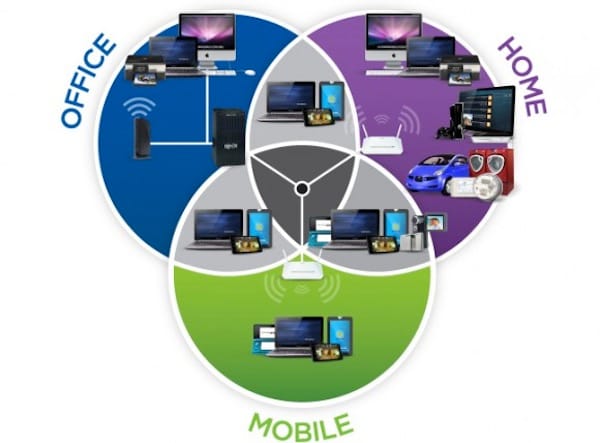Greater Connectivity in 'Internet of Things' Poses Security Risks

Credit: slashgear.com

The "Internet of Things" is the concept that all devices are connected to each other and the user by the Internet. This means, for example, that a refrigerator might be able to tell the consumer on the way to the grocery store that he or she needs to buy more eggs.
It should be noted that this is a broad concept and one that no one company will be able to establish a monopoly on. However, possibilities for this are almost limitless, and it is that fact that makes this technology so important.
This is not to say there will not be monopolization on some facets of the technology. For example, all of this connected technology will require a stable software platform to run on. Also, each device that is a part of the Internet of Things will also require special hardware to connect to the Internet as well.
Developing this technology should not be difficult, since even today a large number of devices are already connected through similar technology.
According to a study by ABI Research, it is estimated that 10 billion devices are currently connected to one another by wired or wireless Internet. By the year 2020, that number is expected to exceed 30 billion.
If the number of connected devices triples every ten years, that means just about all devices and appliances will be connected in the near future.
Even now, evidence of the growing trend of "one-ness" can be observed through what is called "the cloud." That is, a central storage location on the Internet that several devices can access in a household.
The Federal Trade Commission (FTC) is beginning to take a serious look at the technology. However, the agency has expressed its concerns.
"The devices can provide important benefits to consumers: they can handle tasks on a consumer’s behalf, improve efficiency, and enable consumers to control elements of their home or work environment from a distance," the FTC said in a post on its website. "At the same time, the data collection and sharing that smart devices and greater connectivity enable pose privacy and security risks."
In fact, the FTC is so worried about this advancing technology it plans to conduct a workshop on November 21 to address some of the possible issues with the Internet of Things.
Because the Internet of Things is still in a relatively early stage of development, it is difficult to consult with specific companies, so the FTC has turned to consumers for advice. Most notably, the FTC is concerned about the use of such technology by businesses and how consumers may ultimately benefit from the technology.
The driving force behind the spread of this technology is, of course, money; at least, according to the Center for Digital Democracy.
“Far from a science-fiction plot in which the machines, for good or ill, collectively assert their free will, the IP connectivity that is at the heart of the 'Internet of Things' is well established -- and increasingly monetized -- in the mobile marketplace,” said the CDD in a statement to the FTC.
Of course, the financial side of things won't be the only aspect of life affected by this technology. Everything will change and the underlying business models will have to be altered accordingly.



